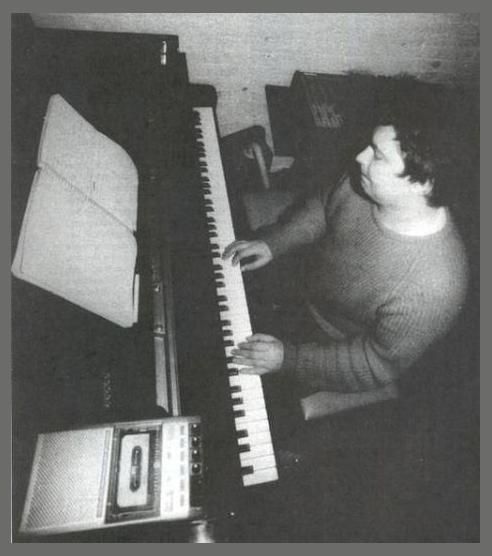 Daniel Johnston
Daniel Johnston
Daniel Johnston: The Troubled Genius Behind "True Love Will Find You in the End"
Daniel Johnston, the enigmatic singer-songwriter, emerged from the annals of underground music in the 1980s with his raw and emotionally evocative songs. His most iconic track, "True Love Will Find You in the End," has become a timeless anthem of hope and resilience.
Early Life and Challenges:
Born in West Virginia in 1961, Johnston grappled with mental health issues throughout his life. Diagnosed with schizophrenia in his late teens, he struggled with periods of hospitalization and homelessness. Despite these challenges, music remained his solace and outlet.
Musical Style and Influences:
Johnston's music was characterized by its lo-fi, home-recorded aesthetic and disarmingly honest lyrics. Influenced by the Beatles, Captain Beefheart, and Velvet Underground, he crafted songs that explored themes of love, loss, and the complexities of his inner life.
Discography:
Johnston's prolific career spanned over four decades, resulting in a vast discography. Notable releases include:
* Hi, How Are You? (1983)
* Yip/Jump Music (1983)
* 1990 (1990)
* Fun (1994)
* Is and Always Was (2001)
Members:
Johnston was primarily a solo artist, but he occasionally performed and recorded with a rotating cast of musicians. Notable collaborators include:
* Jad Fair (Half Japanese)
* Mark Linkous (Sparklehorse)
* Yo La Tengo
* Matt Groening (creator of "The Simpsons")
Controversies:
Johnston's mental health struggles and eccentric behavior sometimes drew controversy. In 1990, he was arrested for stalking a woman and later institutionalized. However, his music's raw power and vulnerability continued to resonate with listeners, transcending his personal challenges.
Legacy:
Daniel Johnston passed away in 2019, leaving behind a musical legacy that continues to inspire and move countless individuals. His songs, including "True Love Will Find You in the End," have become anthems of hope and perseverance for those grappling with life's adversities. Johnston's artistry serves as a reminder that even in the face of darkness, the human spirit can prevail through the transformative power of music.
Daniel Johnston, the enigmatic singer-songwriter, emerged from the annals of underground music in the 1980s with his raw and emotionally evocative songs. His most iconic track, "True Love Will Find You in the End," has become a timeless anthem of hope and resilience.
Early Life and Challenges:
Born in West Virginia in 1961, Johnston grappled with mental health issues throughout his life. Diagnosed with schizophrenia in his late teens, he struggled with periods of hospitalization and homelessness. Despite these challenges, music remained his solace and outlet.
Musical Style and Influences:
Johnston's music was characterized by its lo-fi, home-recorded aesthetic and disarmingly honest lyrics. Influenced by the Beatles, Captain Beefheart, and Velvet Underground, he crafted songs that explored themes of love, loss, and the complexities of his inner life.
Discography:
Johnston's prolific career spanned over four decades, resulting in a vast discography. Notable releases include:
* Hi, How Are You? (1983)
* Yip/Jump Music (1983)
* 1990 (1990)
* Fun (1994)
* Is and Always Was (2001)
Members:
Johnston was primarily a solo artist, but he occasionally performed and recorded with a rotating cast of musicians. Notable collaborators include:
* Jad Fair (Half Japanese)
* Mark Linkous (Sparklehorse)
* Yo La Tengo
* Matt Groening (creator of "The Simpsons")
Controversies:
Johnston's mental health struggles and eccentric behavior sometimes drew controversy. In 1990, he was arrested for stalking a woman and later institutionalized. However, his music's raw power and vulnerability continued to resonate with listeners, transcending his personal challenges.
Legacy:
Daniel Johnston passed away in 2019, leaving behind a musical legacy that continues to inspire and move countless individuals. His songs, including "True Love Will Find You in the End," have become anthems of hope and perseverance for those grappling with life's adversities. Johnston's artistry serves as a reminder that even in the face of darkness, the human spirit can prevail through the transformative power of music.